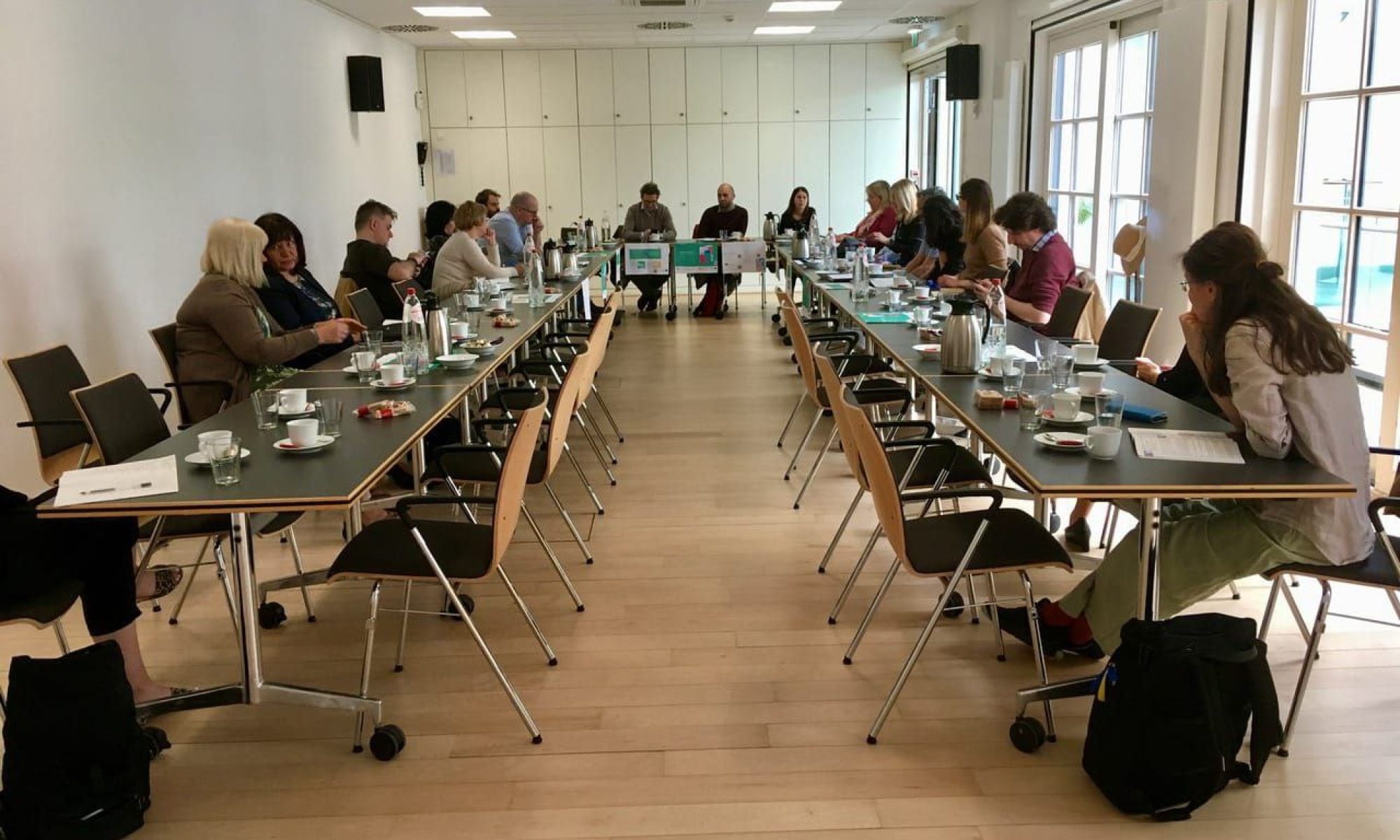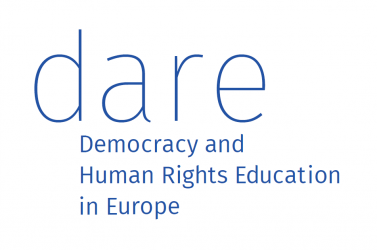The Democracy and Human Rights Education Network (DARE), is a Europe-wide network of NGOs, academic, research and other organisations focusing on the twin fields of human rights education and education for democratic citizenship. It is committed to promoting through education a deeper understanding of human rights and democracy within Europe. It seeks to create a new environment in which such organisations can thrive, benefiting from common services and the pooling of experience and expertise.
DARE seeks to raise the profile of education for democratic citizenship and human rights, both generally and as a core component of the formal and informal education systems throughout Europe.
Principles of Democracy and Human Rights Education
1. Democracy and human rights education encompasses the right to know, seek, obtain, receive, hold and disseminate information about all human rights and fundamental freedoms, including information as to how human rights and freedoms are given effect in domestic legislative, judicial and administrative systems in democracies.
2. The core elements of democracy and human rights education are:
- the universal character of human rights
- the respect for democracy, human rights and fundamental freedoms
- empowerment of the individual citizen and groups to make full use of their democratic rights
- the combat against discrimination, racism, xenophobia and related intolerance
- gender equality
- inclusion of persons with disabilities
- active citizenship
3. Democracy and human rights education is a life long process. As such it is an integral element within formal, non-formal and informal education and embraces all citizens, particularly marginalised or disadvantaged groups.
Objectives and activities of DARE
4. DARE asserts the importance of the right of all individuals to the knowledge and understanding of and realisation of their human rights as a key element of democratic citizenship, as an integral part of the right to education.
5. DARE recognises that states have the main responsibility to facilitate education for citizens about democracy and human rights. Democracy and human rights education is also the responsibility of civil society. The media have an important role in informing citizens, contributing to transparency, reporting human rights violations and ensuring that journalistic standards reflect human rights principles.
6. DARE aims to:
- serve as a platform for partnership, coopertion and development of strategy for networking;
- exchange information, exemplary materials, methodology and staff;
- develop common educational projects, standards and good practice.
7. DARE intends to achieve its objectives through development of:
- common databases and systems;
- public relations and lobbying at European level;
- ongoing working groups on policy, operational and educational issues;
- annual seminars for all members on new developments in human rights, policy and educational issues, and management of the network;
- a newsletter to exchange information on the activities of its members;
- a common resource on funding opportunities;
- a common standard for project delivery.
8. DARE will encourage cooperation with other NGOs and relevant organisations and associations, e.g. academic and research institutions or teacher training institutes.
9. DARE is ready to cooperate with the Council of Europe, the European Union, the Office of the UN High Commissioner for Human Rights, the Organization of Security and Cooperation in Europe, UNESCO and other multilateral organisations with regard to relevant education and public information programmes in the field of democratic citizenship and human rights.
10. In addition DARE will to contribute to current debate with regard to:
- a declaration that outlines the principles of democracy and human rights education and acknowledges the importance of fostering a universal culture of human rights as a recognition of current governmental obligations to promote democracy and human rights education;
- a final report on the overall achievements of the United Nations Decade for Human Rights Education and the necessary resources available to conduct this consultation;
- the creation of a United Nations Voluntary Fund for Human Rights Education in order to assure that sufficient resources will be available for promoting and monitoring the advance of democracy and human rights education;
- broadenening the mandate of the Special Rapporteur on the Right to Education to include fully democracy and human rights education;
- the creation of mechanisms to monitor the implementation of commitments on democracy and human rights education;
- active citizenship and lifelong learning;
- the achievements of and follow-up to the United Nations Decade for Human Rights Education;
- the implementation of the European Year of Citizenship through Education in 2005.
Do you support the intentions of the Antwerp Declaration?
Get involved in the DARE network: Membership

